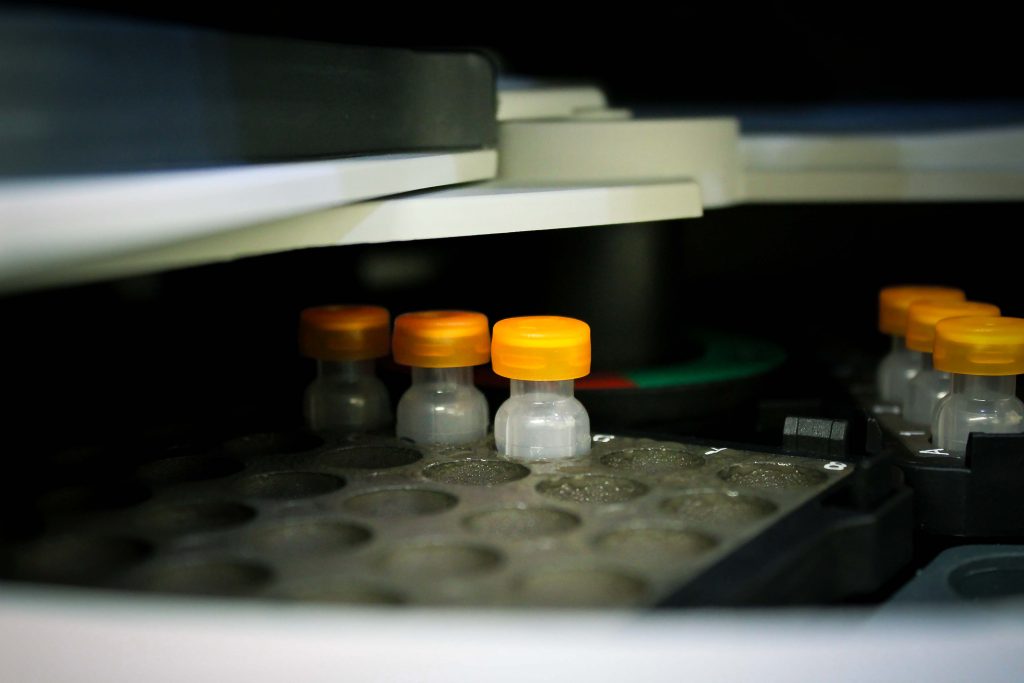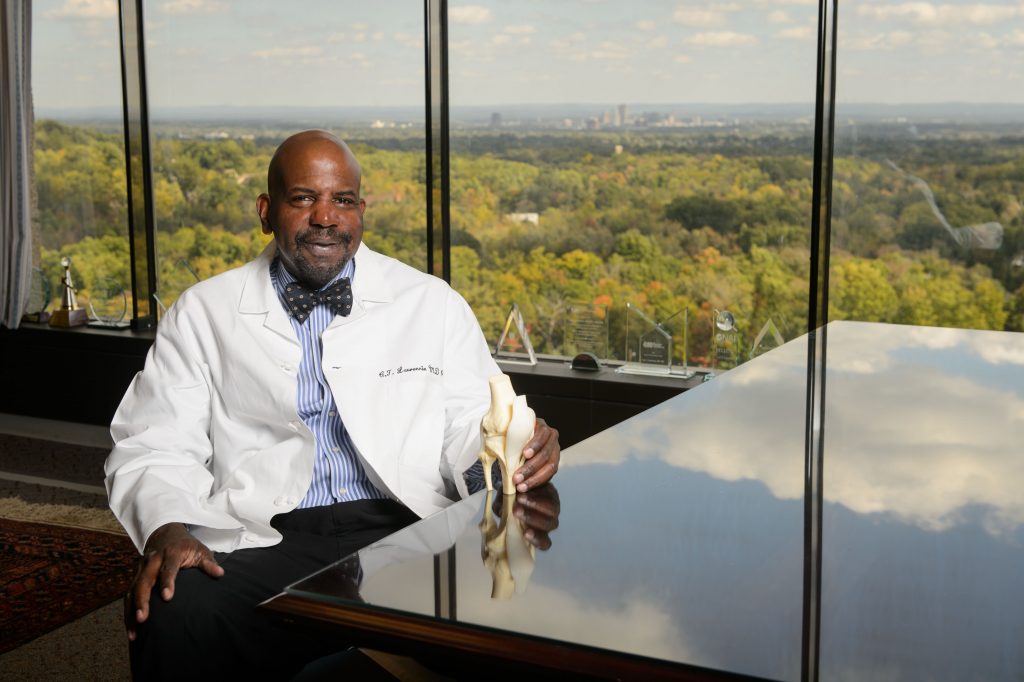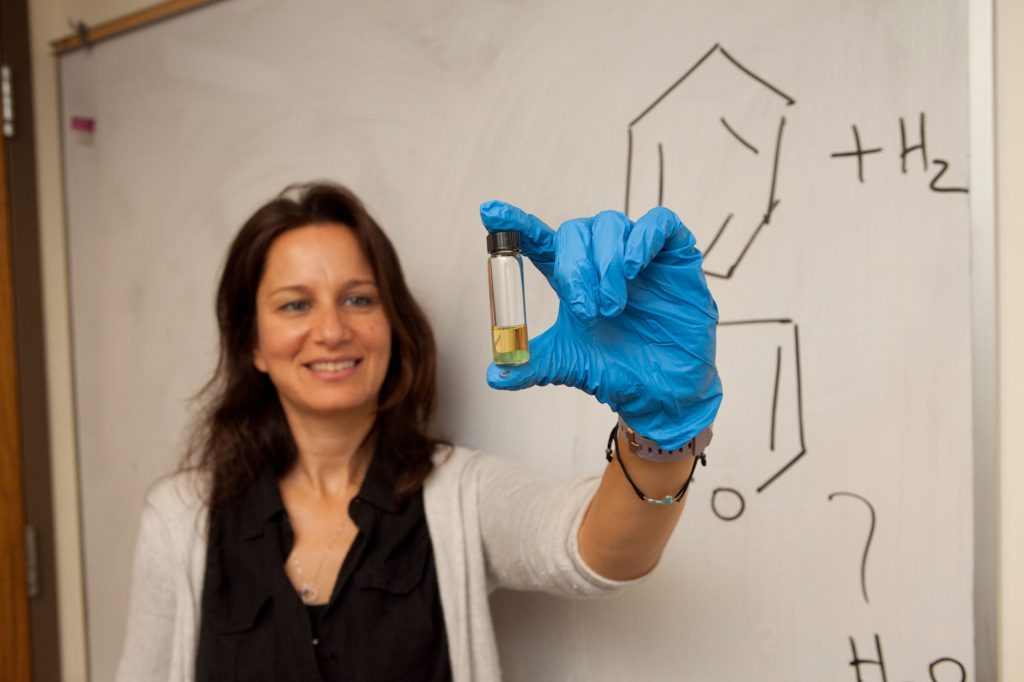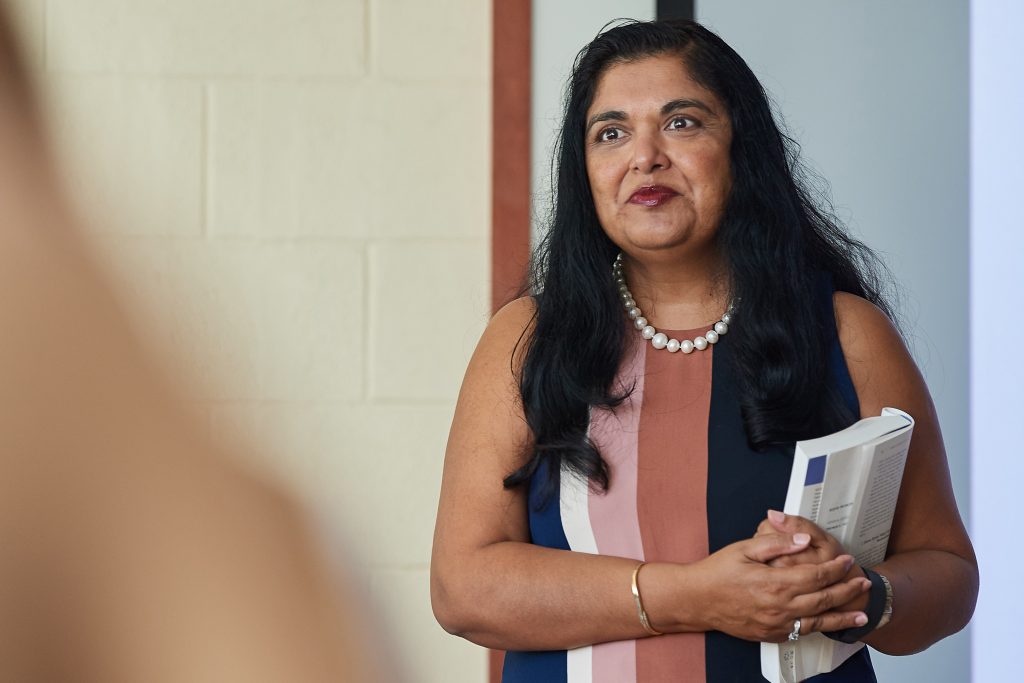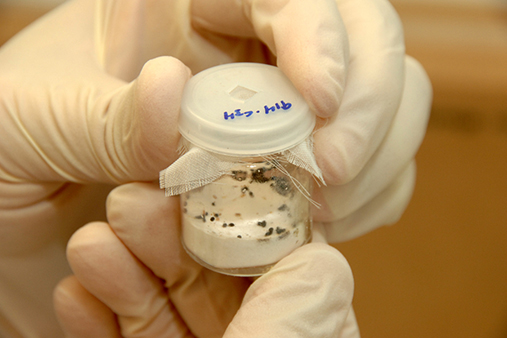Research & Discovery
UConn’s Proteomics and Metabolomics Facility Gives Faculty a Complete Cellular Picture
UConn's Proteomics and Metabolomics Facility houses multiple mass spectrometers and provides faculty expert support to see the full cellular picture.
February 1, 2019 | Carson Stifel ‘21 (CLAS), Office of the Vice President for Research
Dr. Cato T. Laurencin Receives 2019 AAAS Philip Hauge Abelson Prize
The Abelson Prize recognizes Dr. Cato Laurencin's global leadership in biomedical technology innovation, public service in shaping United States technology policy and invaluable mentorship to a generation of minority scientists.
January 30, 2019 | Combined Reports
Fine Tuning the Manufacturing Process of Specialized Catalysts
This project seeks to develop a manufacturing process to produce novel hollow particles with controllable properties and functions for various catalytic applications in energy storage, drug delivery, gas sensing, and more.
January 30, 2019 | Anna Zarra Aldrich '20 (CLAS), Office of the Vice President for Research
Civility and Social Protest
Does it show lack of civility to stage a social protest? That depends on your political views and the protesters' social status, says sociologist Ruth Braunstein.
January 30, 2019 | Kenneth Best
UConn, Innovate Stamford Collaboration Bolsters Innovation Ecosystem
The new partnership, which will include summer internships for 50 UConn students, aims to strengthen the city as a leader in technology, innovation, and entrepreneurship.
January 29, 2019 | Jessica McBride, PhD
The Birds Who Seek Out Goldilocks Fires
Black-backed woodpeckers prefer forests that are burned just right – not too hot, not too cold. But as wildfires become more intense, megafires are not creating a sufficient diversity of habitats.
January 29, 2019 | Elaina Hancock
A Microscope as a Shovel? UConn Researchers Dig It
Using a familiar tool in a way it was never intended to be used opens up a whole new method to explore materials, report UConn researchers in a recent study.
January 28, 2019 | Kim Krieger
No, Kanye, That’s Not How It Happened
Manisha Sinha’s history lessons tell the truth about slavery in the United States.
January 24, 2019 | Christine Buckley
Artificial Skin Could Give Superhuman Perception
Metal skin might sound like a superhero power, but UConn researchers hope it could help burn victims 'feel' again.
January 22, 2019 | Kim Krieger
Meet the Researchers: Spirochete Labs
Anyone who has had to move knows what a pain it is. But imagine not just moving geographically, but switching between completely different biological environments with different nutrients available and immune systems working against you – well that’s the life cycle of Borrelia burgdorferi the bacteria that causes Lyme disease. The most prevalent arthropod-borne infection […]
January 22, 2019 | Anna Zarra Aldrich '20 (CLAS), Office of the Vice President for Research
